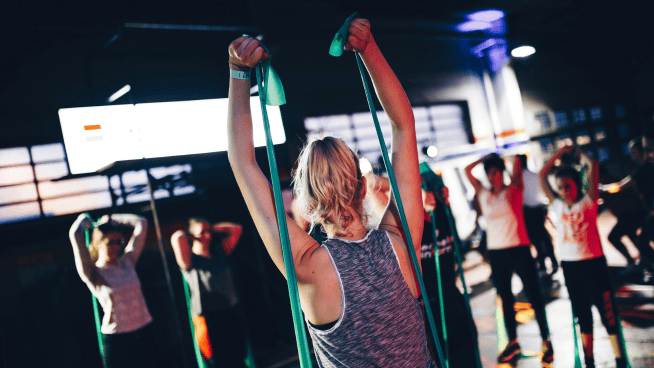How Does Smoking Affect Athletic Performance?

In a recent column in the New York Times chronicling President Obama’s accomplishments, Nicholas Kristof wrote: “Mr. Obama has also helped engineer a successful auto bailout, a big push for clean energy, the Lilly Ledbetter Fair Pay Act to reduce sex discrimination, tighter tobacco regulations aimed at the 1,000 Americans under age 18 who become smokers each day, and tighter financial regulation including reform of credit card rules.”
What struck me: 1,000 new young smokers every day! Today’s young people are so smart in so many ways, I asked myself, “How can they be so stupid about smoking?” And particularly relevant for STACK’s readers, how does smoking affect athletic performance?
eHow.com provides a comprehensive answer:
Lung Health
One of the main impacts of smoking on athletic performance is a decrease in lung function. For athletes, this means a decrease in stamina and performance, as muscles that get inadequate oxygen become fatigued more quickly. Smokers also tend to suffer from shortness of breath more often than nonsmokers, as their muscles and heart demand more oxygen than their lungs are able to supply.
Circulatory Health
Another impact smoking has on athletes is its effect on heart and circulatory health. Smoking causes the blood vessels to constrict and become blocked with plaque, and it can also increase blood pressure. Constricted blood vessels reduce blood flow to the muscles, further limiting the amount of oxygen the muscles receive. Loss of blood flow can significantly reduce muscular endurance, while the heart itself may also tire more quickly, as it works harder than it should to pump blood through clogged blood vessels.
Injury
Another disadvantage of smoking for athletes is that it can lead to greater chance of injury. When the muscles, heart and brain do not receive enough oxygen, mental and physical acuity can drop. This can cause athletes to make poor decisions, use bad form when exercising, or even become dizzy or faint. Smoking can also reduce the strength of bones and inhibit the body’s ability to repair skin, ligaments and tendons. This means that any injuries a smoker does sustain may take longer to heal, which means more time sitting on the bench.
Source: eHow.com
RECOMMENDED FOR YOU
MOST POPULAR
How Does Smoking Affect Athletic Performance?

In a recent column in the New York Times chronicling President Obama’s accomplishments, Nicholas Kristof wrote: “Mr. Obama has also helped engineer a successful auto bailout, a big push for clean energy, the Lilly Ledbetter Fair Pay Act to reduce sex discrimination, tighter tobacco regulations aimed at the 1,000 Americans under age 18 who become smokers each day, and tighter financial regulation including reform of credit card rules.”
What struck me: 1,000 new young smokers every day! Today’s young people are so smart in so many ways, I asked myself, “How can they be so stupid about smoking?” And particularly relevant for STACK’s readers, how does smoking affect athletic performance?
eHow.com provides a comprehensive answer:
Lung Health
One of the main impacts of smoking on athletic performance is a decrease in lung function. For athletes, this means a decrease in stamina and performance, as muscles that get inadequate oxygen become fatigued more quickly. Smokers also tend to suffer from shortness of breath more often than nonsmokers, as their muscles and heart demand more oxygen than their lungs are able to supply.
Circulatory Health
Another impact smoking has on athletes is its effect on heart and circulatory health. Smoking causes the blood vessels to constrict and become blocked with plaque, and it can also increase blood pressure. Constricted blood vessels reduce blood flow to the muscles, further limiting the amount of oxygen the muscles receive. Loss of blood flow can significantly reduce muscular endurance, while the heart itself may also tire more quickly, as it works harder than it should to pump blood through clogged blood vessels.
Injury
Another disadvantage of smoking for athletes is that it can lead to greater chance of injury. When the muscles, heart and brain do not receive enough oxygen, mental and physical acuity can drop. This can cause athletes to make poor decisions, use bad form when exercising, or even become dizzy or faint. Smoking can also reduce the strength of bones and inhibit the body’s ability to repair skin, ligaments and tendons. This means that any injuries a smoker does sustain may take longer to heal, which means more time sitting on the bench.
Source: eHow.com











